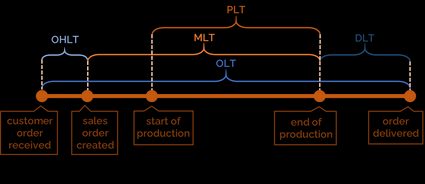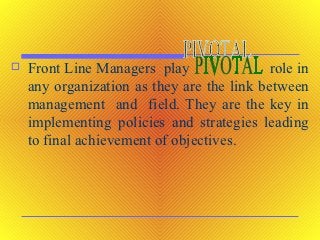
The Compensation and Benefits Coordinator oversees the activities and goals of subordinate employees and ensures that budgets and project milestones have been met. They also have full authority to take personnel actions. The average experience for a compensation and benefit manager is between five and three years. They must also have an extensive understanding of departmental processes.
Duties
The compensation and benefits manager is responsible for overseeing all aspects of an organization’s benefits and compensation program. Your job entails analyzing data, identifying trends and monitoring employee benefit packages. They also consult with management, department heads, and HR staff. It is important for benefits and compensation managers to be informed about the changing regulations regarding employee benefits. They are responsible to ensure that employee benefit packages meet all legal requirements and conform with tax liabilities.
The primary responsibility of a compensation and benefits manager is to create and implement cost-effective employee benefits programs. They must have strong decision-making skills and be able evaluate current and future programs. Compensation and benefits managers also support the HR department in recruiting and hiring activities and develop employee wellness programs. They also manage department budgets.

Salary
The median salary for a compensation and benefits manager is $122,270 per year. The median salary for this job is determined by many factors such as education, experience, and certification. The highest-paid managers of compensation and benefits earn more than 208,000. Although most compensation and benefit managers work full-time during peak hours, some do overtime or work extra hours. According to the Bureau of Labor Statistics, employment of compensation and benefits managers will increase 3 percent between 2018 and 2028.
Compensation and benefits managers manage employee benefits and salary structure. They are responsible for determining company policies and researching competitive benefits. They are responsible for ensuring that employees receive competitive wages and benefits. The annual and quarterly reviews of the employee wage budgets are also done by compensation and benefits managers. They also supervise other compensation specialists, and check their accuracy. Other responsibilities include overseeing payroll distribution and organizing events to inform employees about benefits.
Education required
For a job as a compensation manager, the education requirements include a bachelor's in business administration or closely related fields, along with at least five years of work experience. Employers will prefer candidates with a master’s in business administration. Employer benefits and compensation plans are managed by compensation managers.
This job requires strong interpersonal skills and the ability work under pressure. They should be able to combine technical skills with human resources knowledge. Compensation and benefits managers generally work full-time, often working 40 hours a week. They may sometimes work overtime in order to meet deadlines. While compensation and benefit managers are skilled in many areas, they still need to have extensive leadership and management skills. They must also be able to understand human psychology.

Employment outlook
Compensation and benefits managers have a wide range of responsibilities. These managers must be able and able to analyse data and make recommendations to senior executives. They should be able communicate effectively and possess high levels of discretion and ethics. These professionals should also be familiar with the laws and regulations regarding compensation and benefits.
A bachelor's degree, usually in human resources or business administration, is necessary for compensation and benefit managers. Online programs may also be available. Additional to a traditional degree, compensation managers and benefits mangers can also get useful work experience.
FAQ
What is the best way to motivate your employees as a manager?
Motivation is the desire to do well.
It is possible to be motivated by doing something you enjoy.
Another way to get motivated is to see yourself as a contributor to the success of the company.
For example: If you want to be a doctor, you might find it more motivating seeing patients than reading medical books all day.
The inner motivation is another type.
For example, you might have a strong sense of responsibility to help others.
You might even enjoy the work.
If you don't feel motivated, ask yourself why.
You can then think of ways to improve your motivation.
Six Sigma is so beloved.
Six Sigma is easy to use and can lead to significant improvements. Six Sigma provides a framework to measure improvements and allows companies to focus on the most important things.
What is TQM exactly?
The quality movement was born during the industrial revolution when manufacturing companies realized they could not compete on price alone. They needed to improve quality and efficiency if they were going to remain competitive.
Management responded to the need to improve, and developed Total Quality Management (TQM). This focused on improving every aspect of an organization’s performance. It included continuous improvement processes, employee involvement, and customer satisfaction.
What are the main four functions of management
Management is responsible for organizing, managing, directing and controlling people, resources, and other activities. It includes the development of policies and procedures as well as setting goals.
Management is the ability to direct, coordinate, control, motivate, supervise, train, and evaluate an organization's efforts towards achieving its goals.
The following are the four core functions of management
Planning – Planning involves deciding what needs to happen.
Organizing - Organizing involves deciding how things should be done.
Direction - This is the art of getting people to follow your instructions.
Controlling – Controlling is the process of ensuring that tasks are completed according to plan.
It can sometimes seem difficult to make business decisions.
Complex systems with many moving parts are the hallmark of businesses. Their leaders must manage multiple priorities, as well as dealing with uncertainty.
It is important to understand the effects of these factors on the system in order to make informed decisions.
You must first consider what each piece of the system does and why. It is important to then consider how the individual pieces relate to each other.
You should also ask yourself if there are any hidden assumptions behind how you've been doing things. If so, it might be worth reexamining them.
Try asking for help from another person if you're still stuck. You may be able to see things from a different perspective than you are and gain insight that can help you find a solution.
What kind people use Six Sigma?
People who have worked with statistics and operations research will usually be familiar with the concepts behind six sigma. But anyone can benefit from it.
Because it requires a high level of commitment, only those with strong leadership skills will make an effort necessary to implement it successfully.
Statistics
- As of 2020, personal bankers or tellers make an average of $32,620 per year, according to the BLS. (wgu.edu)
- Our program is 100% engineered for your success. (online.uc.edu)
- Your choice in Step 5 may very likely be the same or similar to the alternative you placed at the top of your list at the end of Step 4. (umassd.edu)
- UpCounsel accepts only the top 5 percent of lawyers on its site. (upcounsel.com)
- The average salary for financial advisors in 2021 is around $60,000 per year, with the top 10% of the profession making more than $111,000 per year. (wgu.edu)
External Links
How To
How do I get my Six Sigma License?
Six Sigma is a quality management tool to improve processes and increase efficiency. It's a methodology that helps companies achieve consistent results from their operations. The name comes from the first two letters of the Greek word "sigmas" which mean "six." Motorola invented this process in 1986. Motorola realized that standardizing manufacturing processes was necessary to make products more efficient and less expensive. They had been having problems with consistency because of the many different people who were doing the work. To resolve this issue, they used statistical tools like Pareto analysis and control charts. These techniques would be applied to every aspect of the operation. They would then be able make improvements where needed. When you are trying to obtain your Six Sigma certification, there are three steps. The first step is to find out if you're qualified. You will need classes to pass before you can begin taking tests. After passing the classes, you will be able to take the tests. It is important to review everything that you have learned in class. Next, you'll be ready for the test. If you pass, you'll get certified. And finally, you'll be able to add your certifications to your resume.